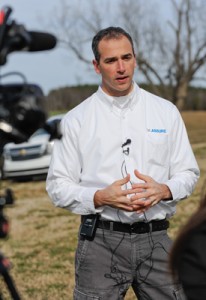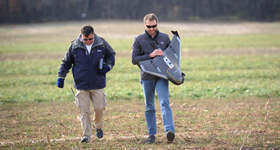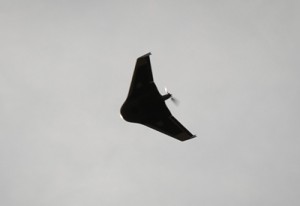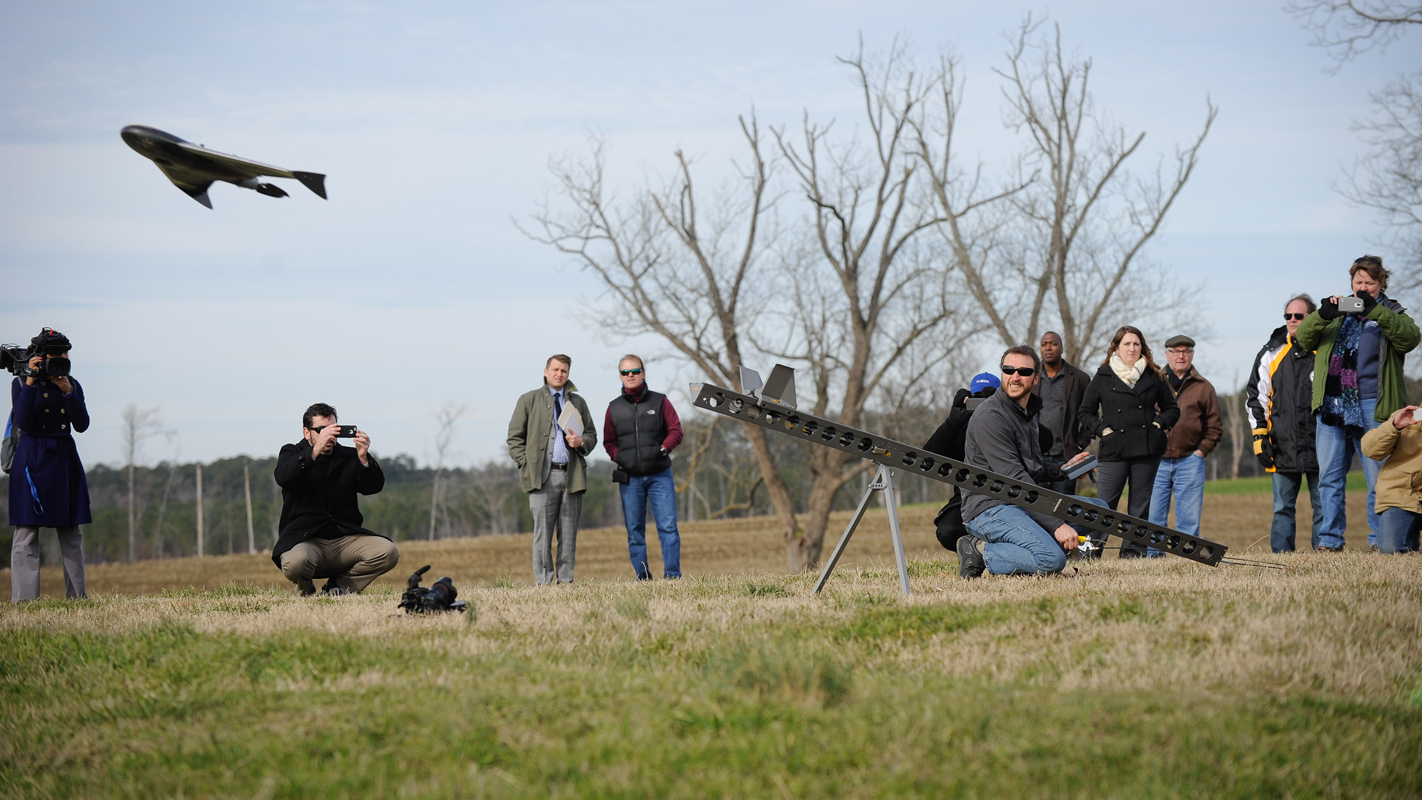For all the hubbub and electric-motor buzz about unmanned aerial vehicles (UAVs), watching a research drone take off, fly and land is hardly the world’s most compelling activity.

And that’s a good thing, says Kyle Snyder, the director of the NextGen Air Transportation (NGAT) institute located on NC State’s Centennial Campus.
“We really like boring flights,” Snyder says. “It shows that these systems are mature and that we can operate them safely in the national airspace system.”
Thursday, NGAT hosted a flight demonstration of its new UX5 fixed-wing UAV, a five-and-a-half pound plane fitted with a high-resolution digital camera that is part of the next wave of aerial imaging that could provide valuable data for commercial agriculture, state government and other federal and local agencies. The $50,000 system was donated to NGAT by Trimble Navigation, a worldwide data-gathering company that has a UAS manufacturing operation in North Carolina.
It’s one of several unmanned aerial systems (UAS) NGAT uses from multiple industry partners around the nation and the state that are looking to do research in the evolving industry. These are not hobbyist planes, susceptible to flying unannounced into, say, the White House grounds.

This is a controlled flight programmed into a fully integrated data-gathering system. The plane flies for up to 50 minutes, creates ortho-mosaic photo images from overlapping images taken from about 300 feet off the ground.
Snyder and his NGAT team are authorized for test flights for the UX5 over the Lake Wheeler research farm, weekly operations that help show the benefits of UAV flights for research and agency purposes.
“This is an aircraft we can fly every day,” Snyder says. “It’s a routine, repeatable operation. Our ultimate goal is to show that [this technology] can be used frequently and safely, with a managed team, so that more people can start using [UAVs] and so that the state can go about issuing regulations and permits for flight.

“That’s our primary goal: safe operations and the ability for more people to gain access to the technology.”
In the coming months, the FAA will issue long-awaited proposed regulations for operating the small planes and quadcopters that are the lifeblood for the multi-billion industry. NGAT, with funding from the N.C. Department of Transportation and oversight by the N.C. Office of Information Technology Services, has operated six test flight locations across the state and will implement the state of North Carolina’s policies for commercial and state agency use.
“What we are doing is help grow an industry here in the state,” Snyder says. “It’s already a $2 to 4 billion industry across the country and we are seeing more companies get involved every day.
“We want to make sure North Carolina is a leader in this by opening safe places to fly, using our operation regulations.”
- Categories:



